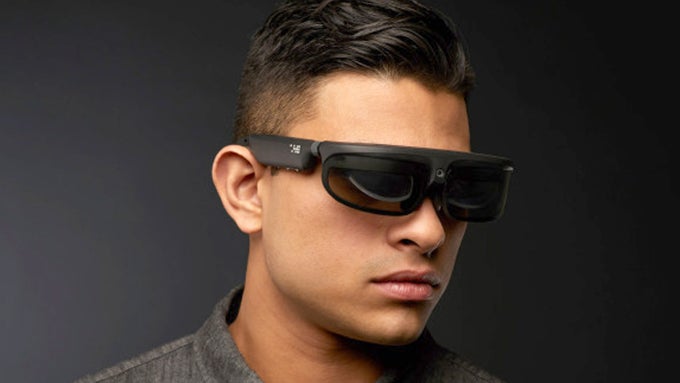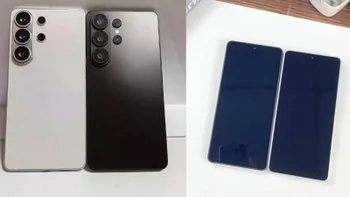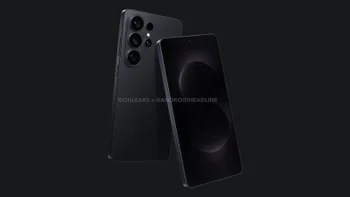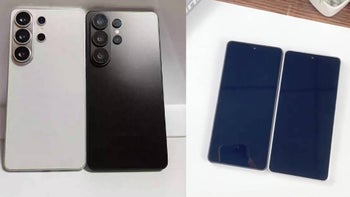Qualcomm XR1 is official: A Snapdragon chip intended for AR and VR experiences

Chip maker Qualcomm has just unveiled its first dedicated augmented and virtual reality platform. Dubbed the Snapdragon XR1, it's a fairly humble chipset that's intended to be integrated into various controllers and goggles and allow for more passive, laidback AR and VR experiences.
While the chipset can hardly hold a candle to the company's latest and much more powerful Snapdragon 800-series chips in terms of AR and VR prowess, Qualcomm points out that the XR1 is still perfectly capable of outputting 4K video out at 60 frames per second while keeping the power consumption comfortably low. The same applies to the thermal efficiency of the XR1 platform. The platform supports key visual APIs like OpenGL, OpenCL, and Vulkan, opening a slew of possibilities for developers.
As far as audio is considered, the chipset doesn't disappoint either. Aside from binaural audio, it also supports Qualcom's Technologies 3D Audio Suite, Qualcomm Aqstic Audio Technologies, Qualcomm aptX Audio for hi-fi experiences and “always-on, always-listening” voice assistance, and Bluetooth playback. The chipset also supports three- and six-degrees of freedom as well as controller input for augmented experiences.
With its new Snapdragon XR1 chip, Qualcomm once again proves that it's one of the industry's driving forces behind AR and VR experiences.
AI is another field in which the XR1 dabs on in. Capable of on-device processing of AI-related queries, the chipset will capable of running "high performing, power efficient machine learning based computer vision algorithms that can help with key AR use cases like better pose prediction and object classification". This will be super useful for any future VR headsets that employ the Snapdragon XR1.
Says Alex Katouzian, senior vice president and general manager, Mobile Business Unit, Qualcomm Technologies, Inc: “As technology evolves and consumer demand grows, we envision XR devices playing a wider variety of roles in consumers’ and workers’ daily lives. By integrating powerful visuals, high-fidelity audio, and rich interactive experiences, XR1 will help create a new era of high-quality, mainstream XR devices for consumers.”
With its new Snapdragon XR1 chip, Qualcomm once again proves that it's one of the industry's driving forces behind AR and VR experiences.
source: Qualcomm
Qualcomm Technologies, Inc., a subsidiary of Qualcomm Incorporated (NASDAQ:QCOM), debuted the Qualcomm® Snapdragon™ XR1 Platform, the world’s first dedicated Extended Reality (XR) platform during a launch event leading up to the Augmented World Expo (AWE).
XR1 is a next-generation platform offering mainstream users high-quality XR experiences while enabling OEMs to develop mainstream devices. The XR1 platform also has special optimizations for Augmented Reality (AR) experiences with Artificial Intelligence (AI) capabilities offering better interactivity, power consumption and thermal efficiency.
Qualcomm Technologies also announced that Original Equipment Manufacturers (OEMs) Meta, VIVE, Vuzix and Picoare already developing on the first dedicated XR1 platform.
“As technology evolves and consumer demand grows, we envision XR devices playing a wider variety of roles in consumers’ and workers’ daily lives,” said Alex Katouzian, senior vice president and general manager, Mobile Business Unit, Qualcomm Technologies, Inc. “By integrating powerful visuals, high-fidelity audio, and rich interactive experiences, XR1 will help create a new era of high-quality, mainstream XR devices for consumers.”
XR1 integrates Qualcomm Technologies’ heterogeneous compute architecture, including the ARM-based multicore Central Processing Unit (CPU), vector processor, Graphics Processing Unit (GPU) and Qualcomm® AI Engine. Other key features include an advanced XR software service layer, machine learning, the Snapdragon XR Software Development Kit (SDK) and Qualcomm Technologies connectivity and security technologies.
The XR1 platform also provides an AI engine for on-device processing. This engine provides customers the ability to process AI-use cases and run high performing, power efficient machine learning based computer vision algorithms that can help with key AR use cases like better pose prediction, object classification, etc.
Visual Technology
The XR1 platform will enable consumers to be immersed in their favorite movies, programs and sports by supporting Ultra high-definition 4K video resolution at up to 60 frames per second for high-quality VR HMDs. New dedicated hardware and software algorithms within its Qualcomm Spectra™ Image Signal Processor (ISP) can help significantly reduce unwanted noise from snapshots producing a substantially improved final picture in high-quality AR headsets. The integrated display processor provides a range of display options with hardware accelerated composition, dual-display support, 3D overlays and support for leading graphics Application Programming Interfaces (API), including OpenGL, OpenCL and Vulkan. The platform also features advanced vision processing capabilities fundamental for technologies like Visual Inertial Odometry (VIO), which lets users move around in the virtual world or interact with augmented objects in an AR experience.
Audio
The XR1 platform uses Qualcomm Technologies 3D Audio Suite, Qualcomm Aqstic™ Audio Technologies, and Qualcomm® aptX™ Audio for high-fidelity audio experiences and “always-on, always-listening” voice assistance as well as Bluetooth playback. XR1’s head-related transfer functions (HRTF) enable users’ ears to synthesize binaural sound that feels like it comes from a specific point in space.
Interaction
With three- and six-degrees of freedom (3DoF, 6DoF) head tracking and controller capabilities for XR devices, XR1 opens a whole new XR playground for mainstream users, letting them not only move freely in the virtual world like never before but also interact and play within it. An integrated sensor hub and optimized sensor fusion abilities allows users to experience rich interactions with motion to photon latencies well below the scientifically required 20ms.
AWE attendees can find Qualcomm Technologies Inc., at booth number 213 in the Santa Clara Convention Center.
About Qualcomm
Qualcomm invents breakthrough technologies that transform how the world connects and communicates. When we connected the phone to the Internet, the mobile revolution was born. Today, our inventions are the foundation for life-changing products, experiences, and industries. As we lead the world to 5G, we envision this next big change in cellular technology spurring a new era of intelligent, connected devices and enabling new opportunities in connected cars, remote delivery of health care services, and the IoT — including smart cities, smart homes, and wearables. Qualcomm Incorporated includes our licensing business, QTL, and the vast majority of our patent portfolio. Qualcomm Technologies, Inc., a subsidiary of Qualcomm Incorporated, operates, along with its subsidiaries, all of our engineering, research and development functions, and all of our products and services businesses, including, the QCT semiconductor business. For more information, visit Qualcomm’s website, OnQ blog, Twitter and Facebook pages.
XR1 is a next-generation platform offering mainstream users high-quality XR experiences while enabling OEMs to develop mainstream devices. The XR1 platform also has special optimizations for Augmented Reality (AR) experiences with Artificial Intelligence (AI) capabilities offering better interactivity, power consumption and thermal efficiency.
Qualcomm Technologies also announced that Original Equipment Manufacturers (OEMs) Meta, VIVE, Vuzix and Picoare already developing on the first dedicated XR1 platform.
“As technology evolves and consumer demand grows, we envision XR devices playing a wider variety of roles in consumers’ and workers’ daily lives,” said Alex Katouzian, senior vice president and general manager, Mobile Business Unit, Qualcomm Technologies, Inc. “By integrating powerful visuals, high-fidelity audio, and rich interactive experiences, XR1 will help create a new era of high-quality, mainstream XR devices for consumers.”
XR1 integrates Qualcomm Technologies’ heterogeneous compute architecture, including the ARM-based multicore Central Processing Unit (CPU), vector processor, Graphics Processing Unit (GPU) and Qualcomm® AI Engine. Other key features include an advanced XR software service layer, machine learning, the Snapdragon XR Software Development Kit (SDK) and Qualcomm Technologies connectivity and security technologies.
The XR1 platform also provides an AI engine for on-device processing. This engine provides customers the ability to process AI-use cases and run high performing, power efficient machine learning based computer vision algorithms that can help with key AR use cases like better pose prediction, object classification, etc.
Visual Technology
The XR1 platform will enable consumers to be immersed in their favorite movies, programs and sports by supporting Ultra high-definition 4K video resolution at up to 60 frames per second for high-quality VR HMDs. New dedicated hardware and software algorithms within its Qualcomm Spectra™ Image Signal Processor (ISP) can help significantly reduce unwanted noise from snapshots producing a substantially improved final picture in high-quality AR headsets. The integrated display processor provides a range of display options with hardware accelerated composition, dual-display support, 3D overlays and support for leading graphics Application Programming Interfaces (API), including OpenGL, OpenCL and Vulkan. The platform also features advanced vision processing capabilities fundamental for technologies like Visual Inertial Odometry (VIO), which lets users move around in the virtual world or interact with augmented objects in an AR experience.
Audio
The XR1 platform uses Qualcomm Technologies 3D Audio Suite, Qualcomm Aqstic™ Audio Technologies, and Qualcomm® aptX™ Audio for high-fidelity audio experiences and “always-on, always-listening” voice assistance as well as Bluetooth playback. XR1’s head-related transfer functions (HRTF) enable users’ ears to synthesize binaural sound that feels like it comes from a specific point in space.
Interaction
With three- and six-degrees of freedom (3DoF, 6DoF) head tracking and controller capabilities for XR devices, XR1 opens a whole new XR playground for mainstream users, letting them not only move freely in the virtual world like never before but also interact and play within it. An integrated sensor hub and optimized sensor fusion abilities allows users to experience rich interactions with motion to photon latencies well below the scientifically required 20ms.
AWE attendees can find Qualcomm Technologies Inc., at booth number 213 in the Santa Clara Convention Center.
About Qualcomm
Qualcomm invents breakthrough technologies that transform how the world connects and communicates. When we connected the phone to the Internet, the mobile revolution was born. Today, our inventions are the foundation for life-changing products, experiences, and industries. As we lead the world to 5G, we envision this next big change in cellular technology spurring a new era of intelligent, connected devices and enabling new opportunities in connected cars, remote delivery of health care services, and the IoT — including smart cities, smart homes, and wearables. Qualcomm Incorporated includes our licensing business, QTL, and the vast majority of our patent portfolio. Qualcomm Technologies, Inc., a subsidiary of Qualcomm Incorporated, operates, along with its subsidiaries, all of our engineering, research and development functions, and all of our products and services businesses, including, the QCT semiconductor business. For more information, visit Qualcomm’s website, OnQ blog, Twitter and Facebook pages.
Follow us on Google News














Things that are NOT allowed:
To help keep our community safe and free from spam, we apply temporary limits to newly created accounts: